
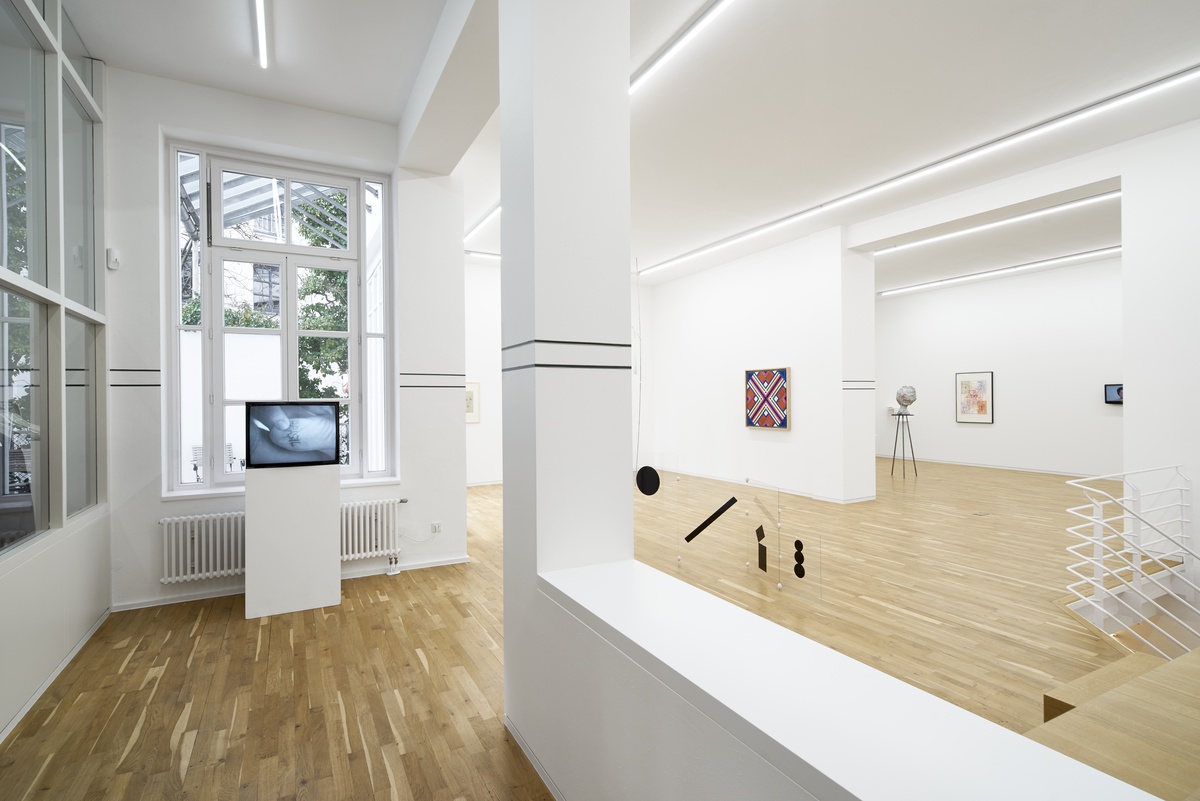


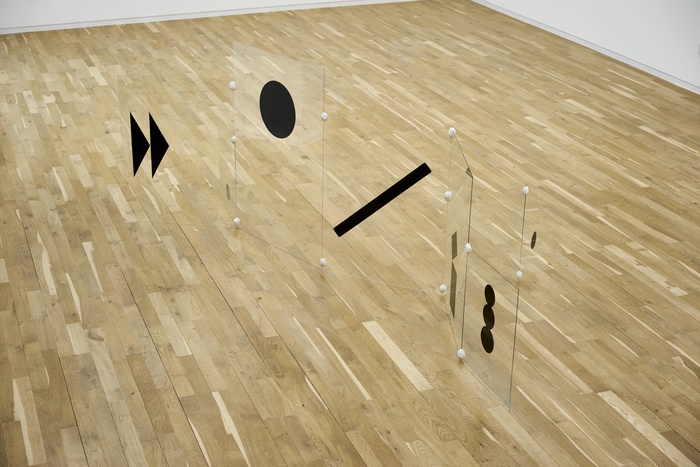
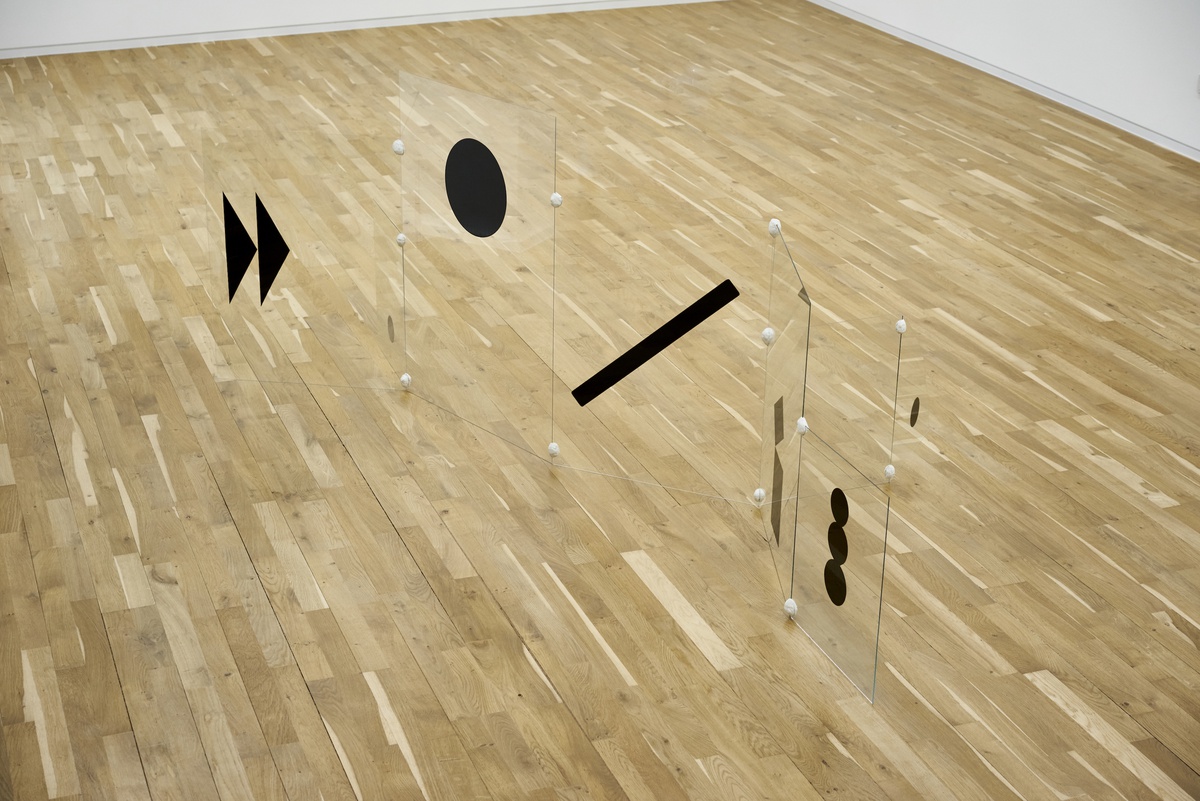

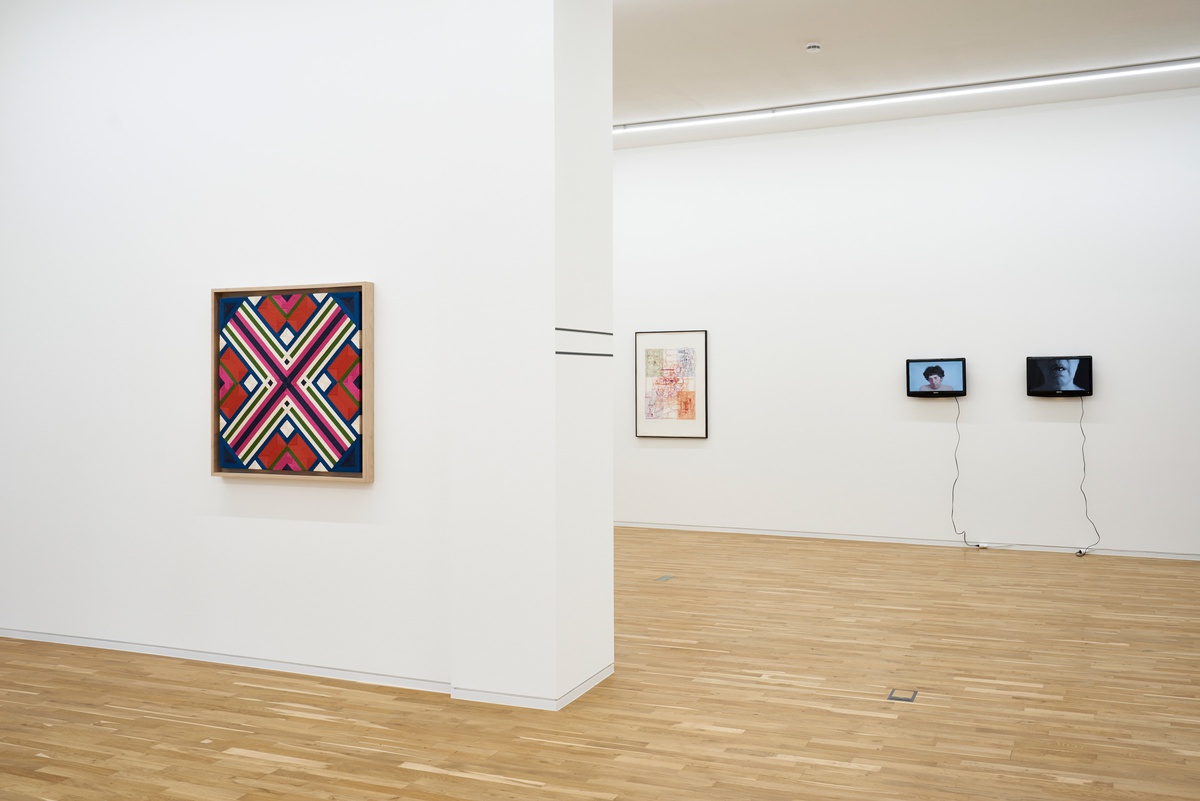
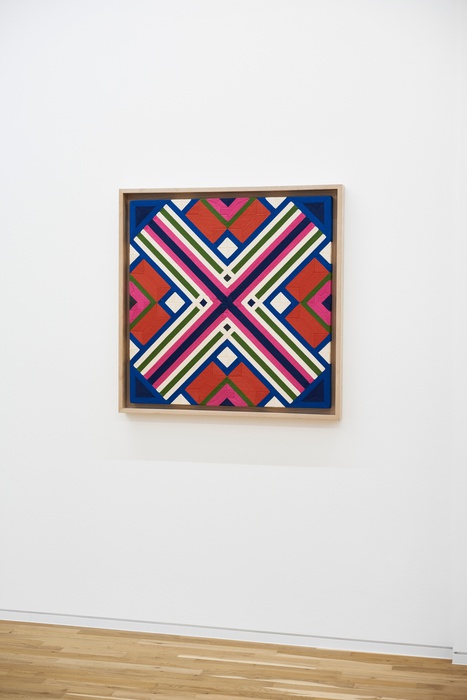
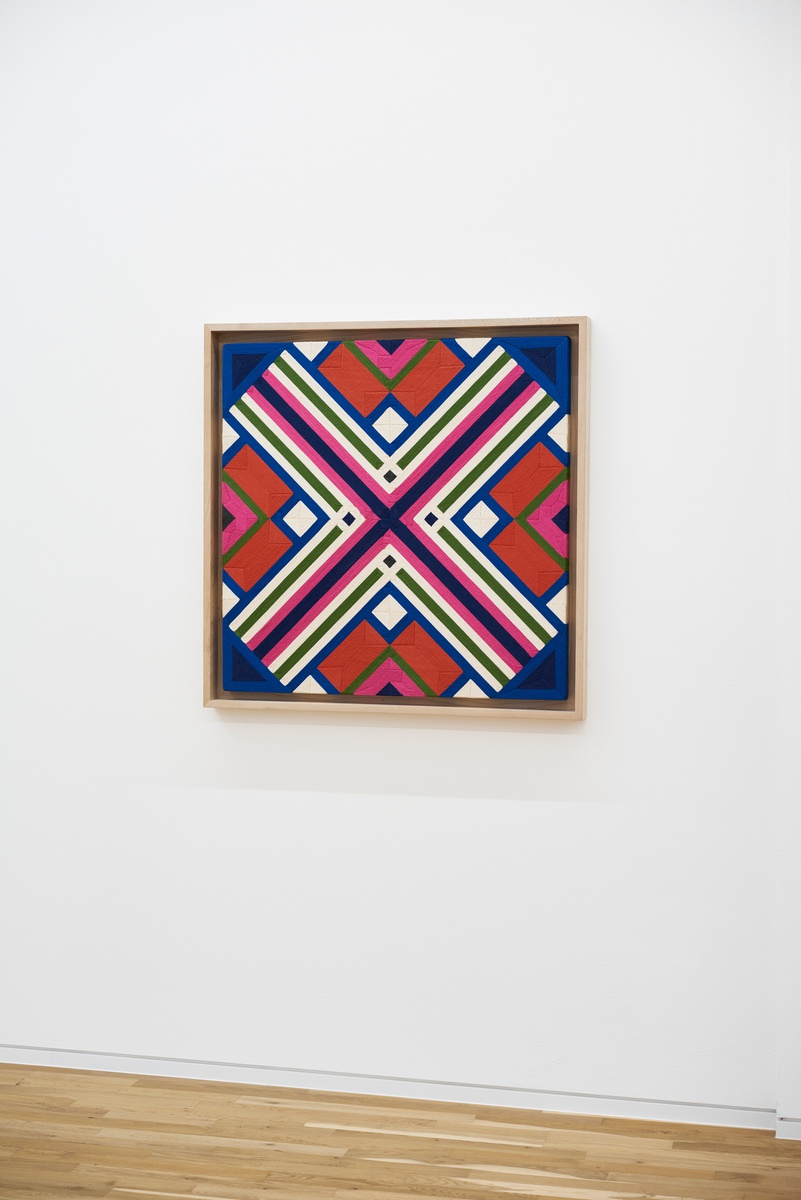

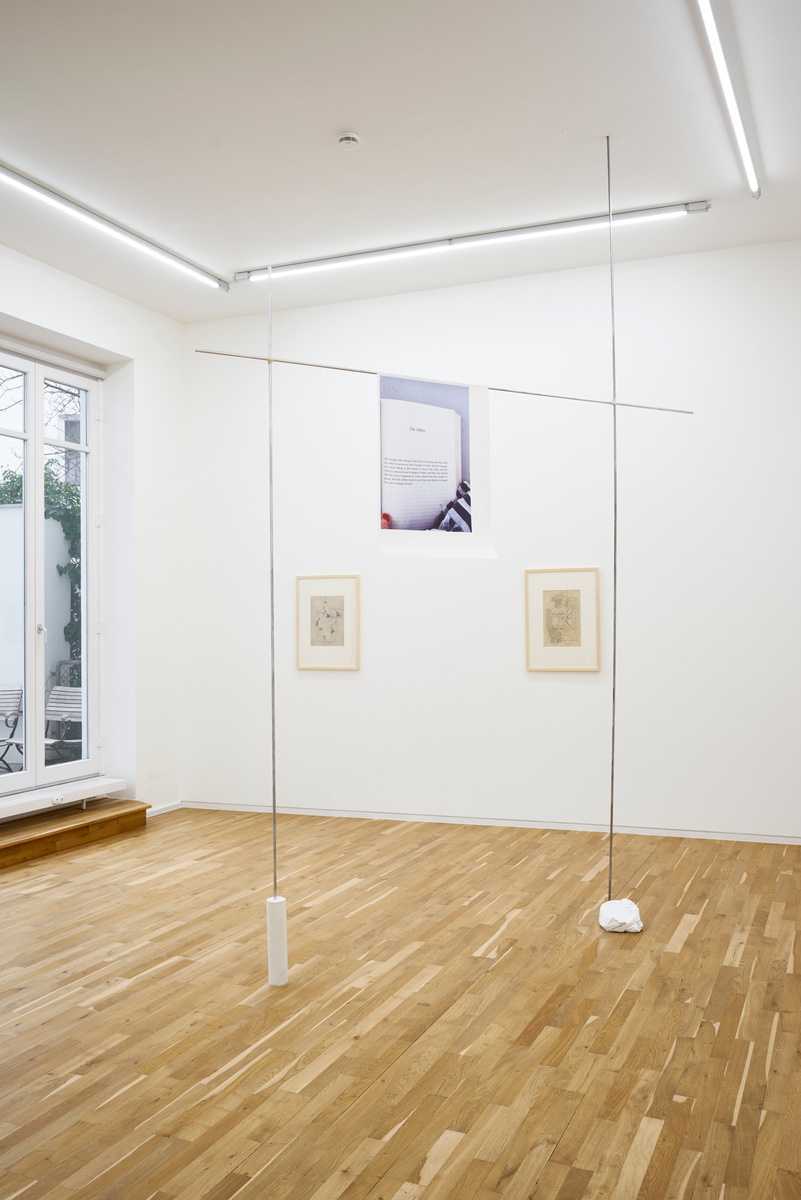

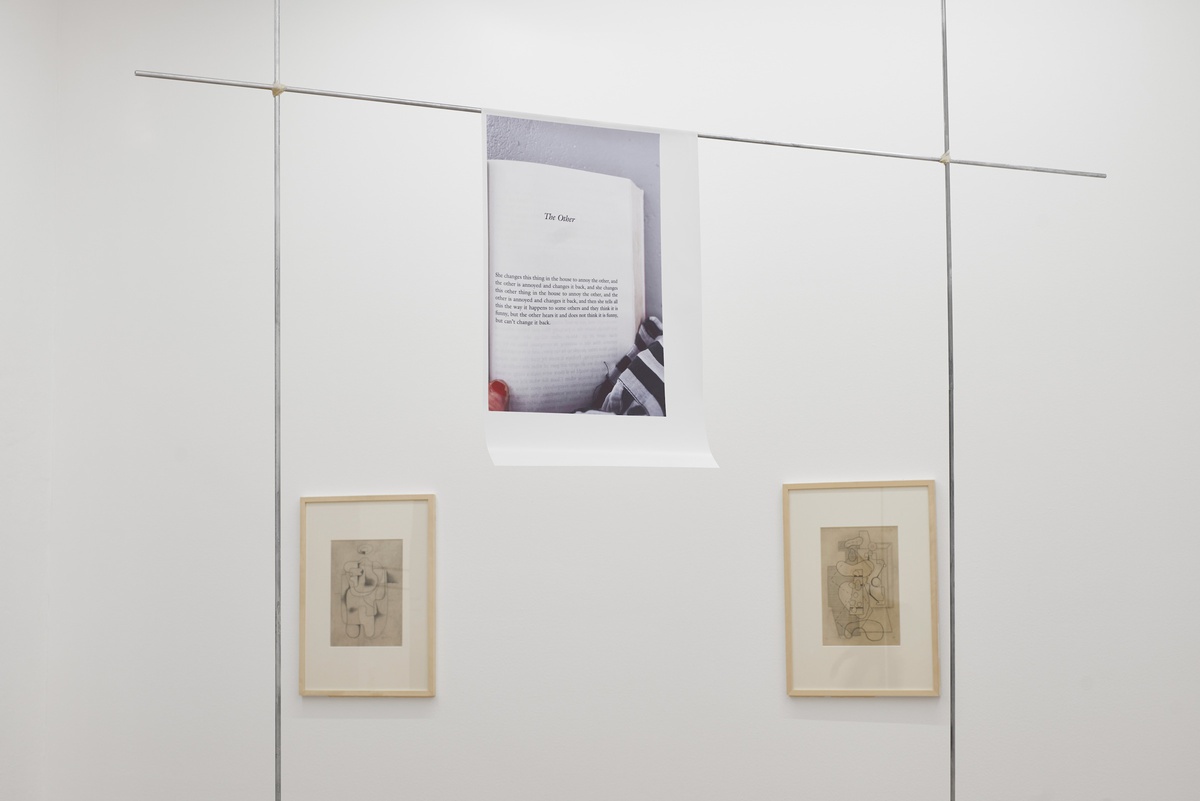

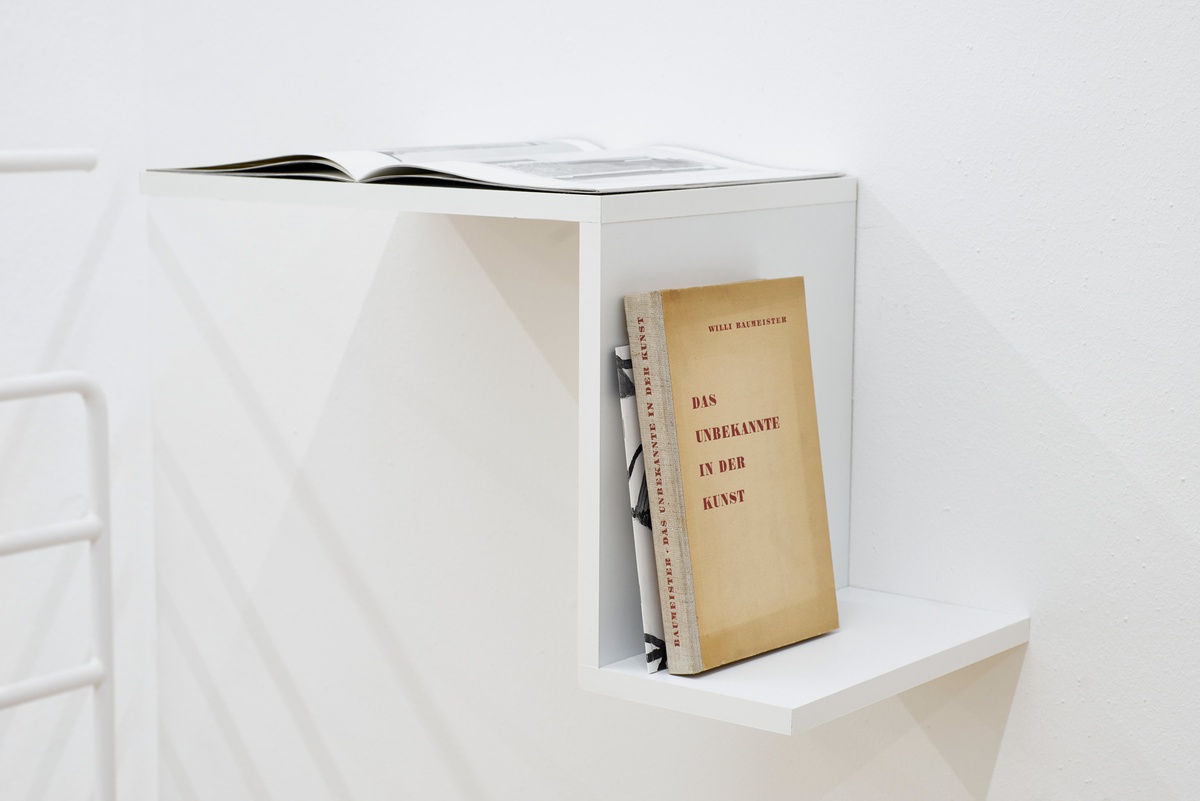

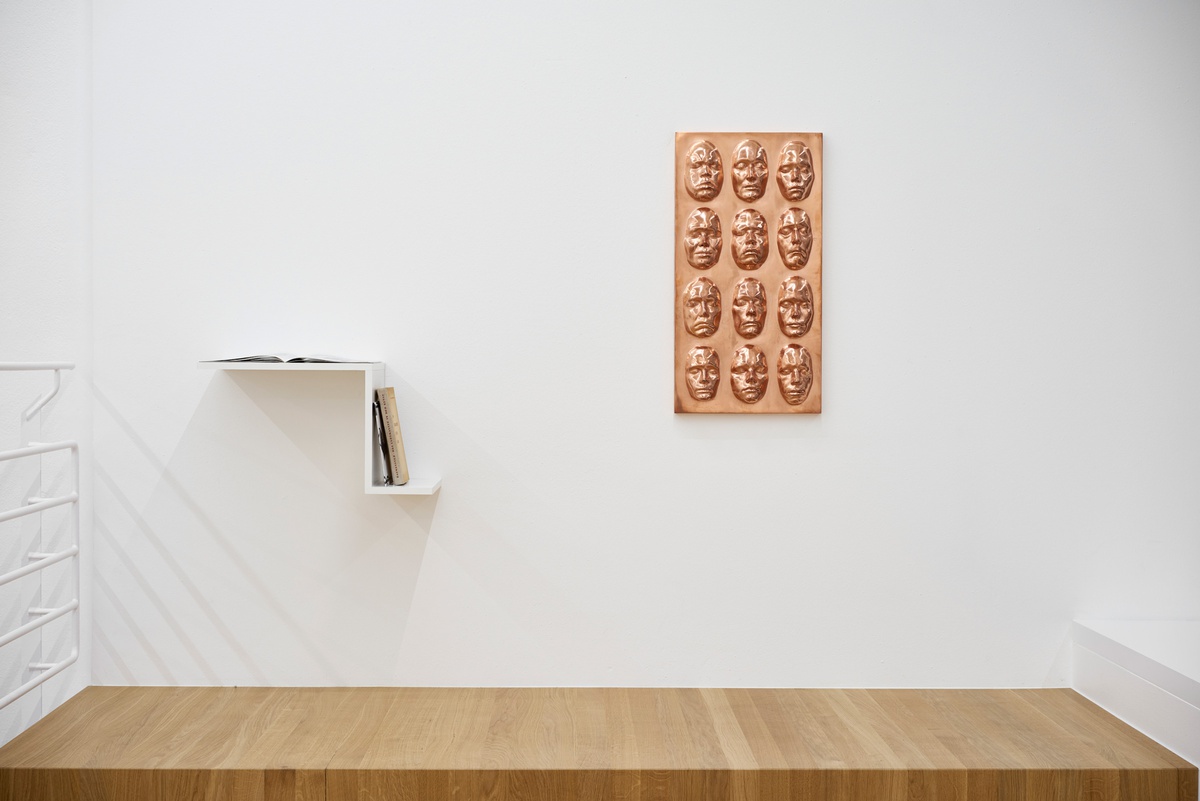

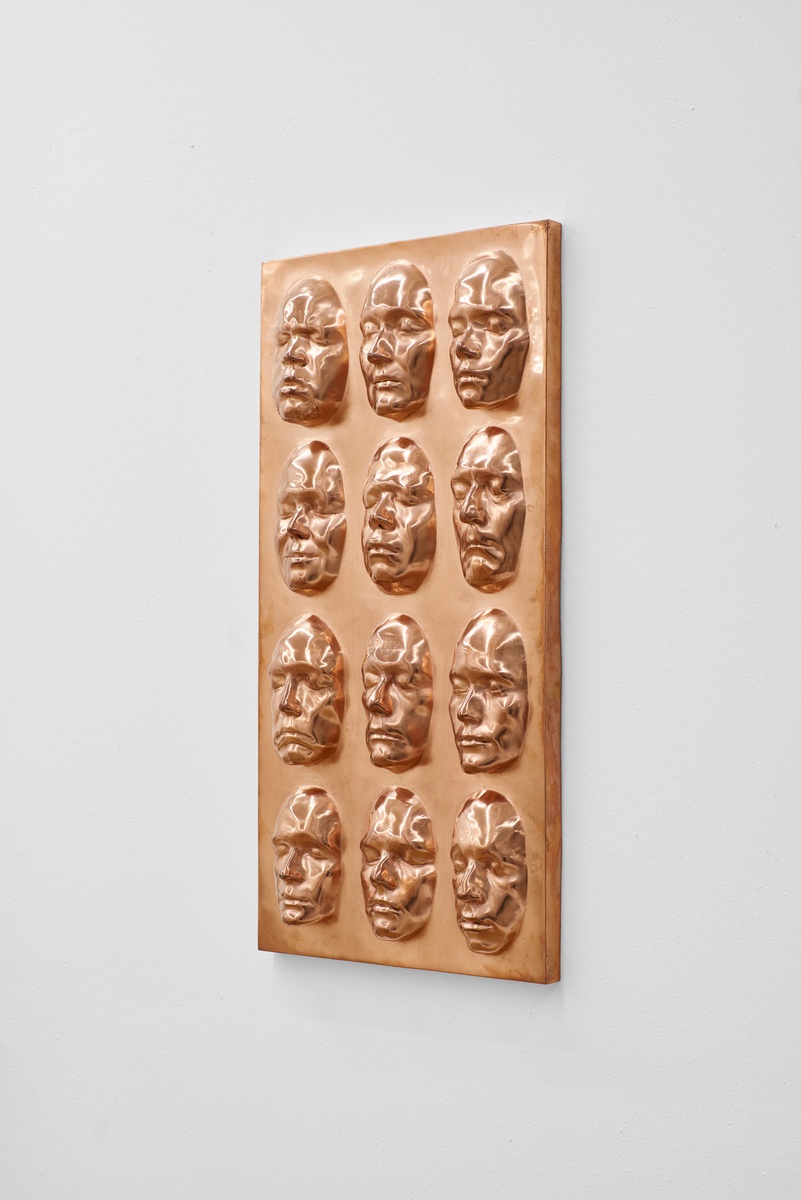

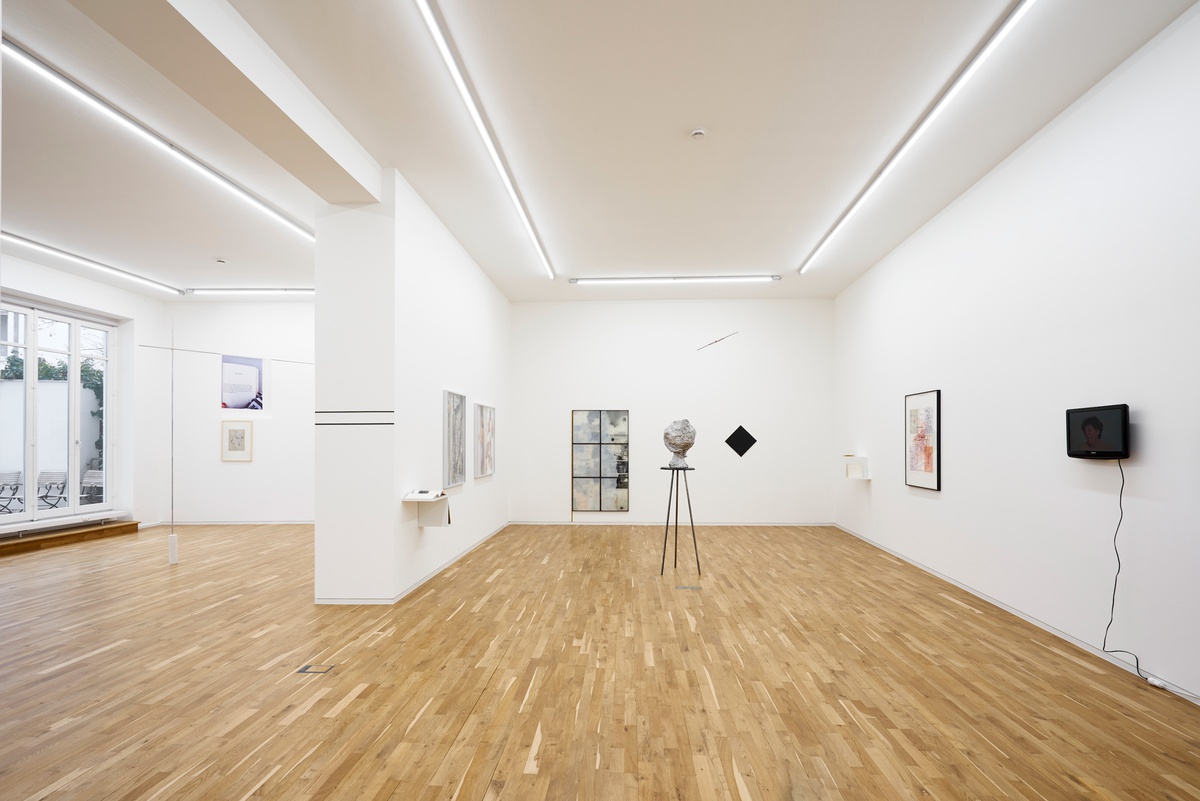

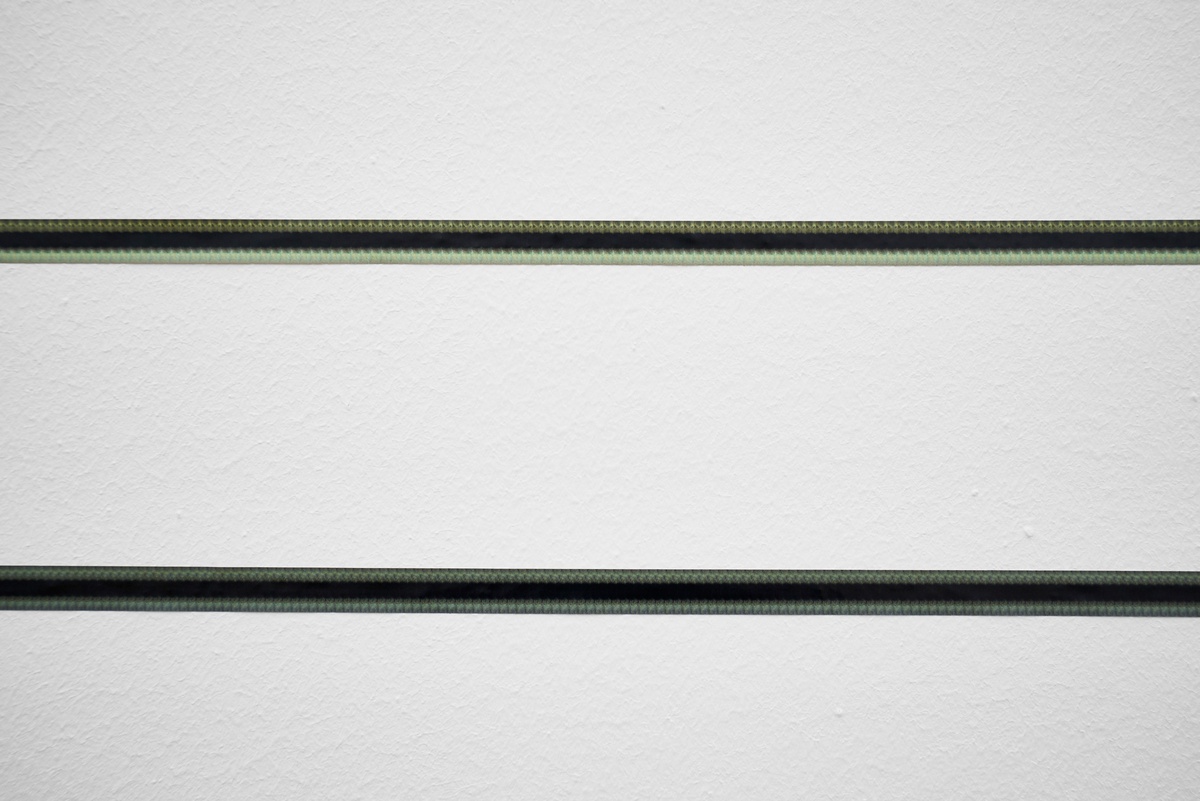

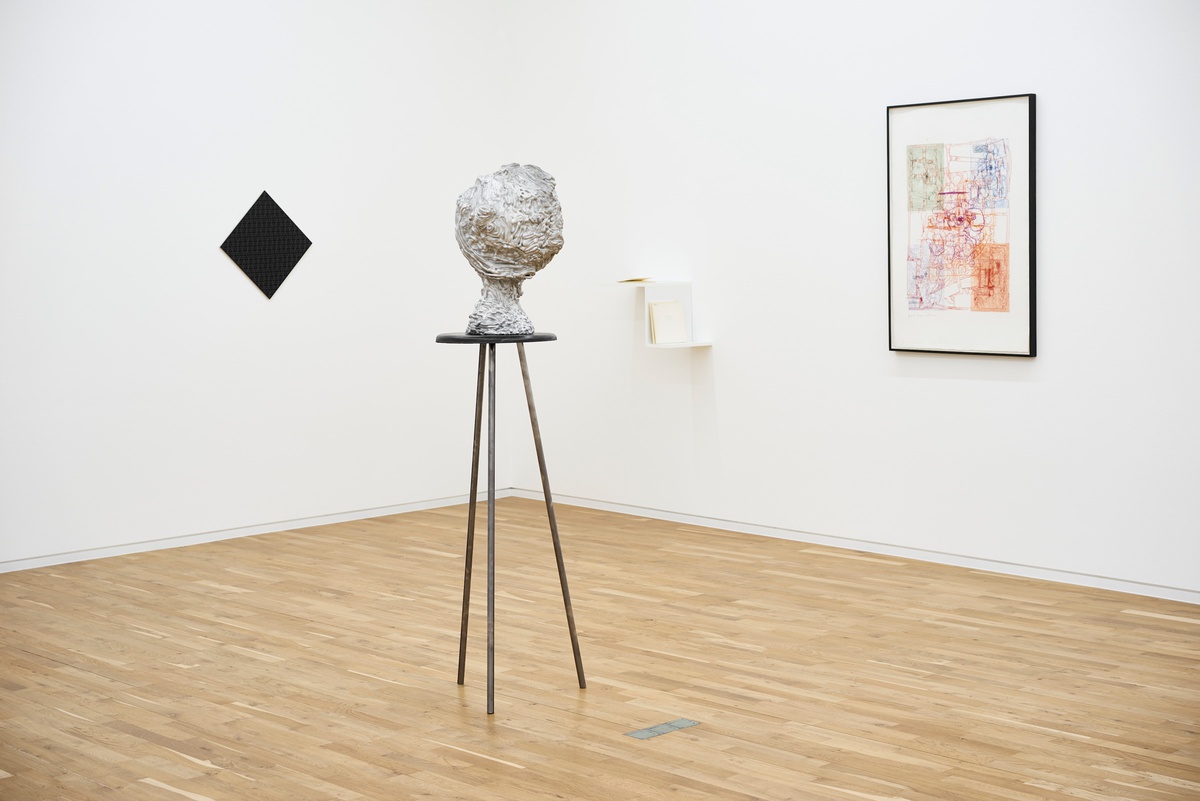

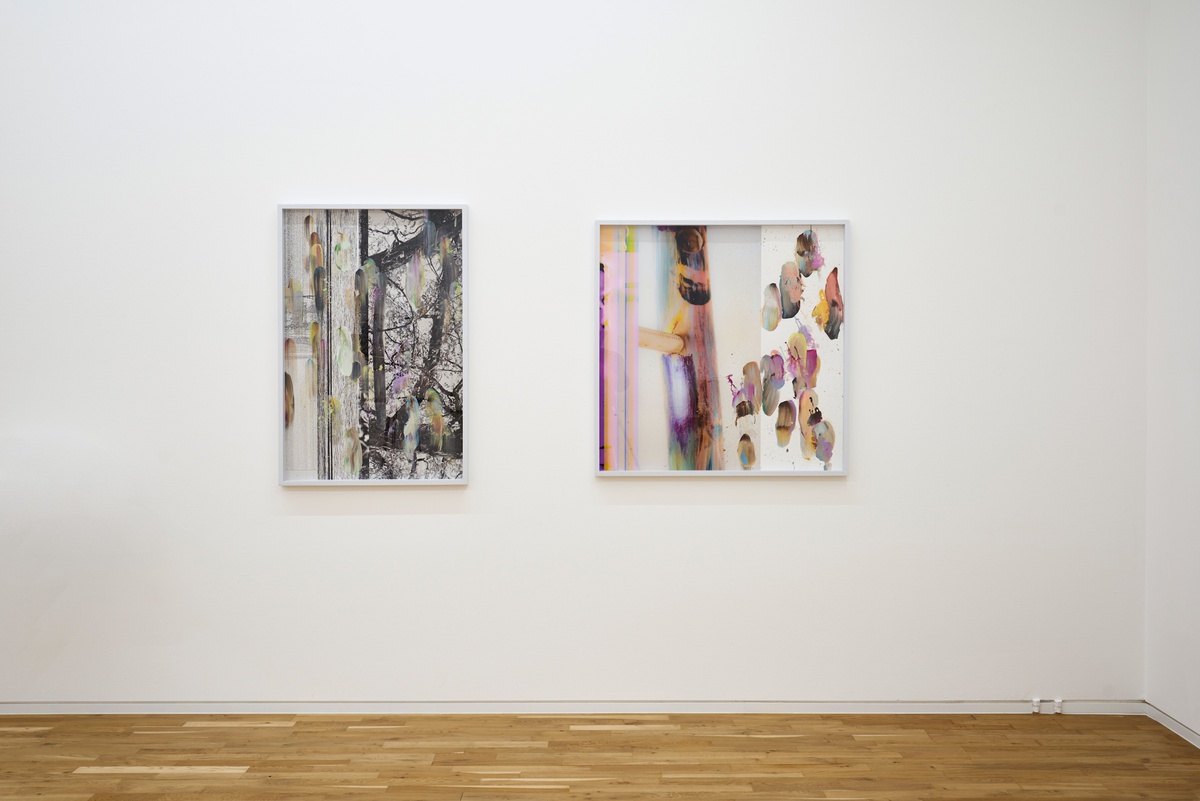

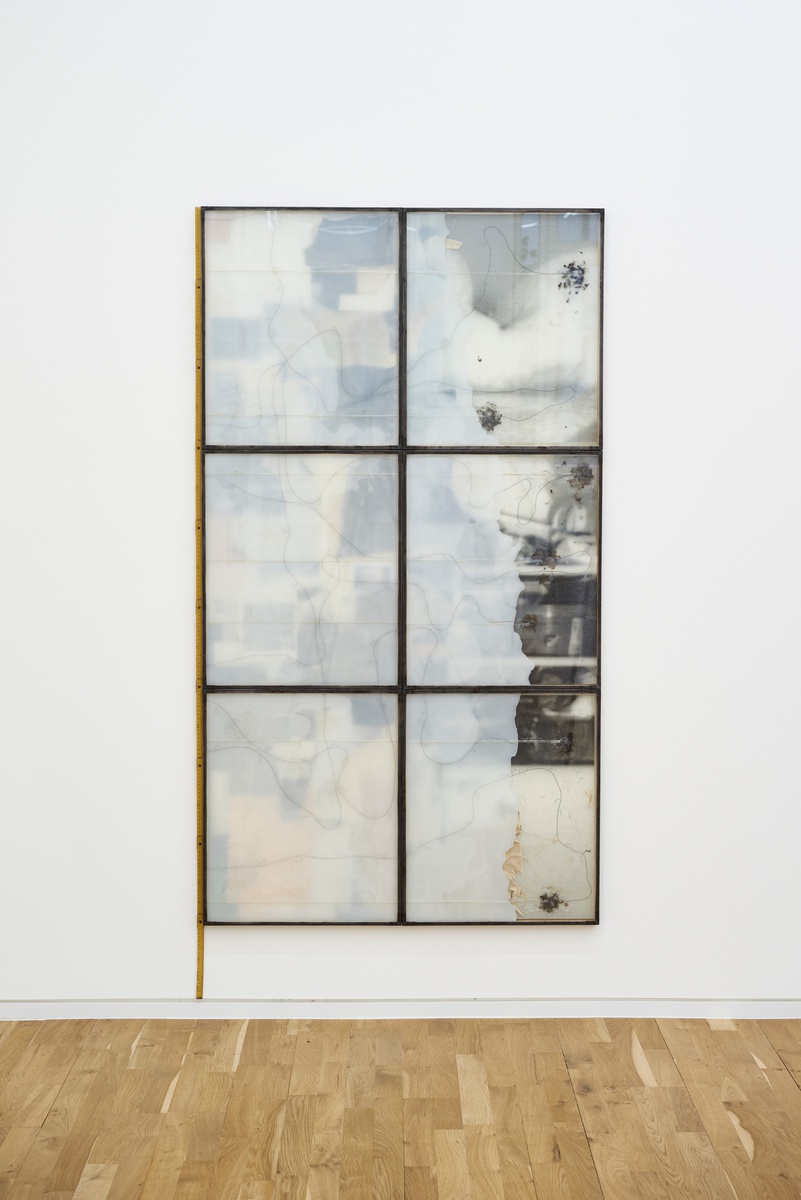

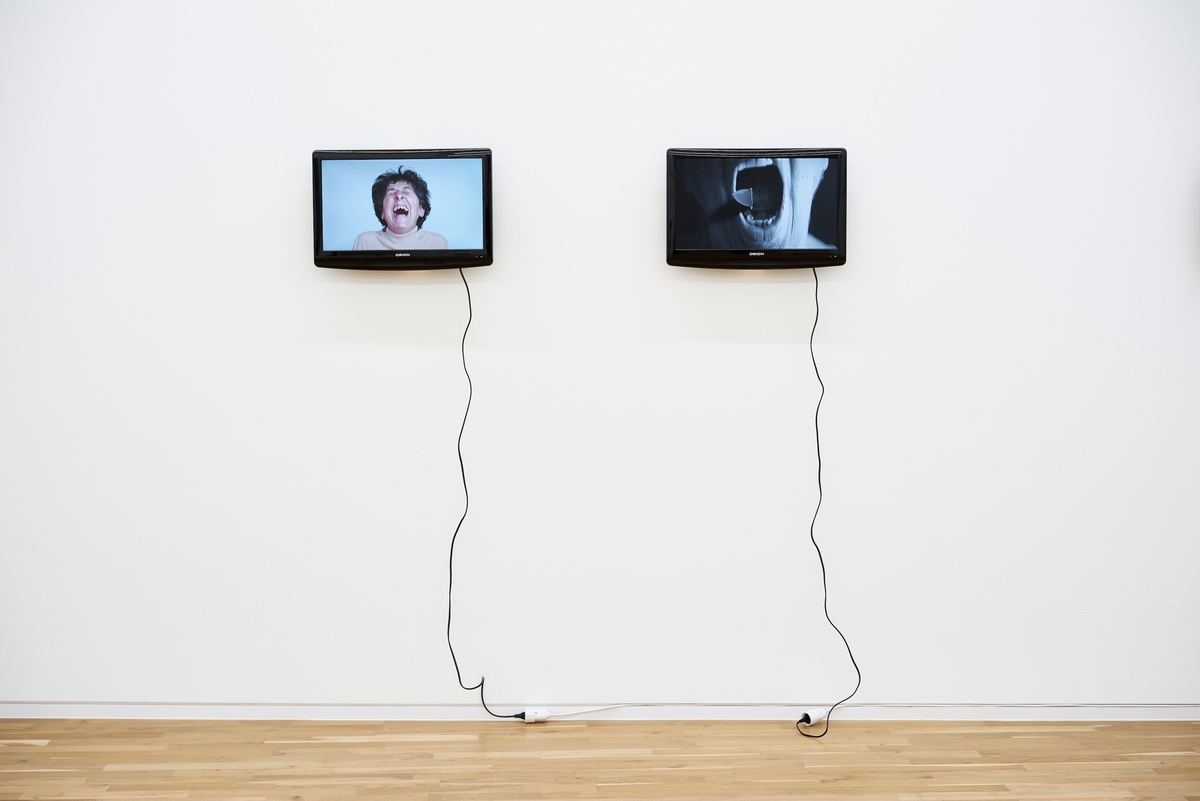

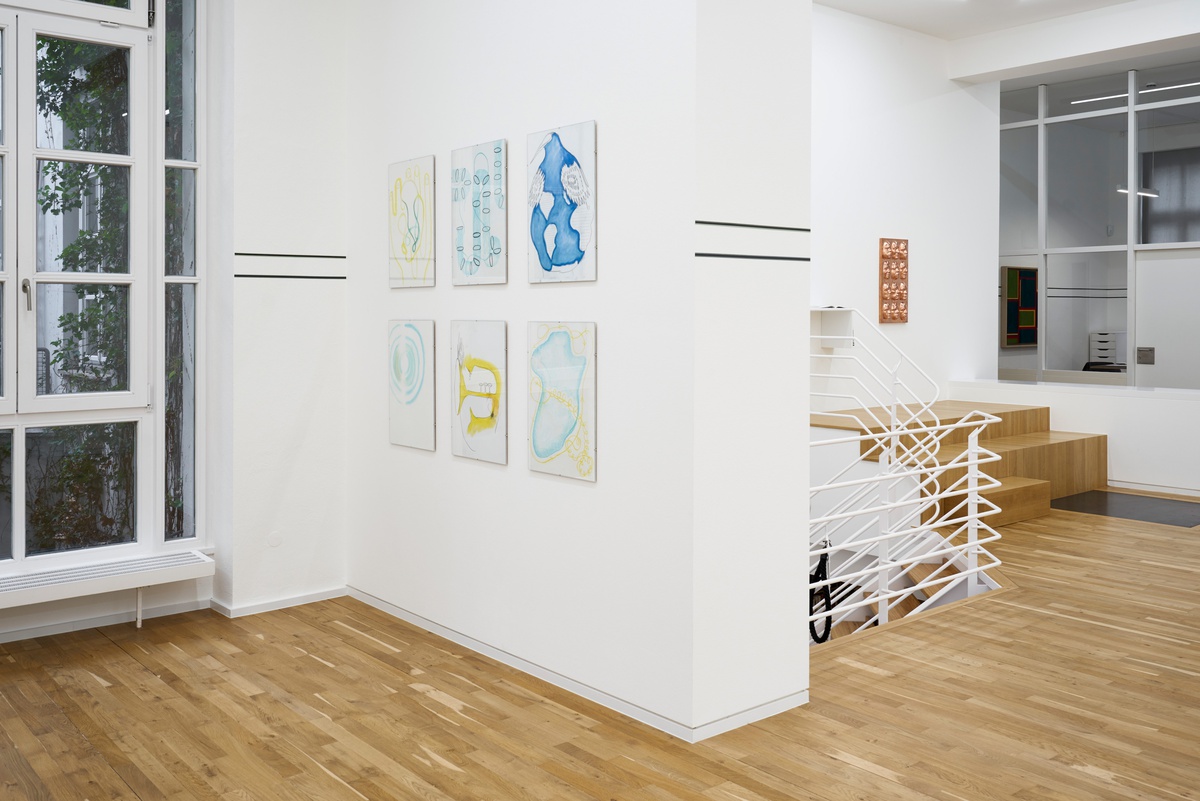

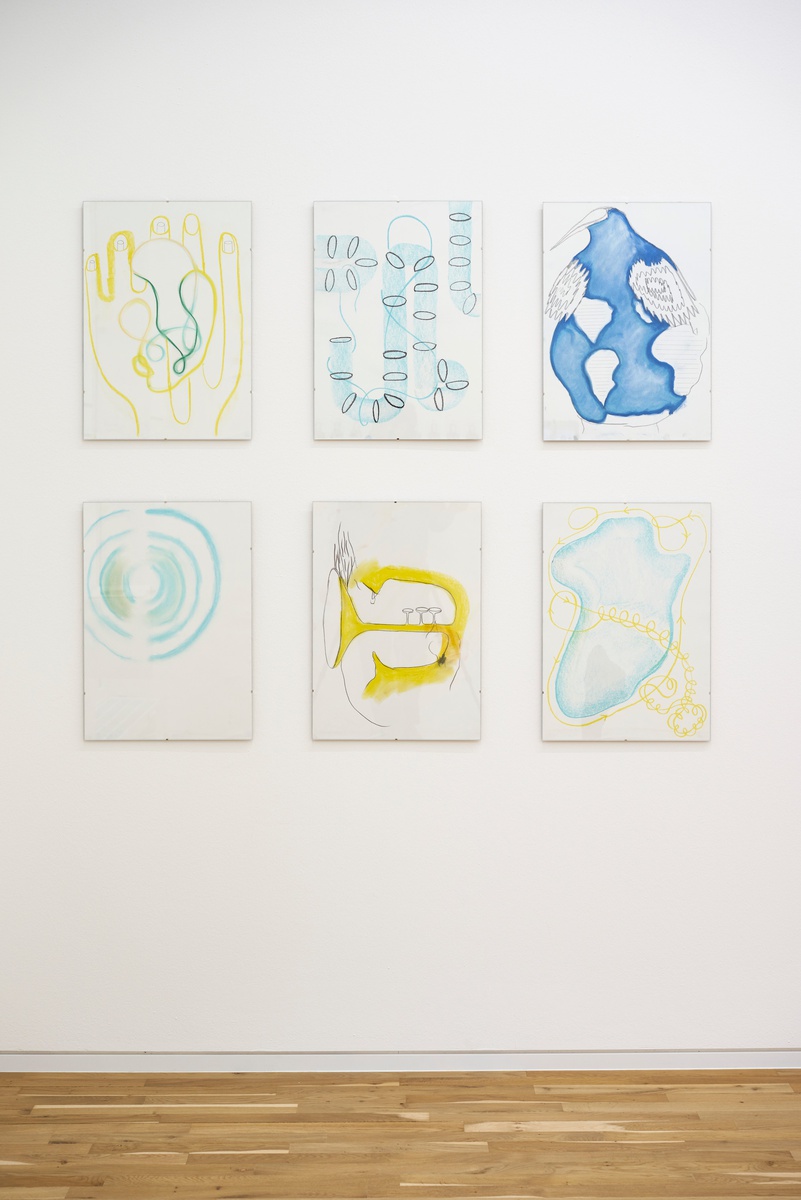

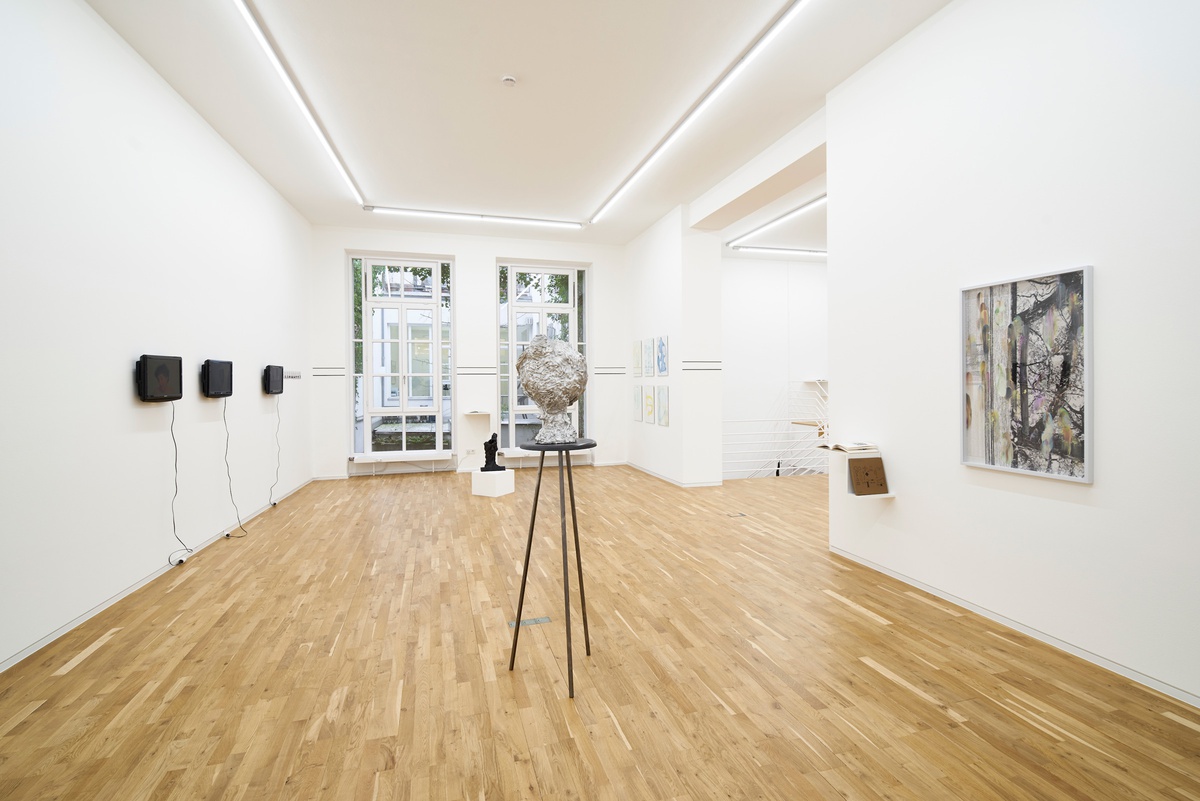

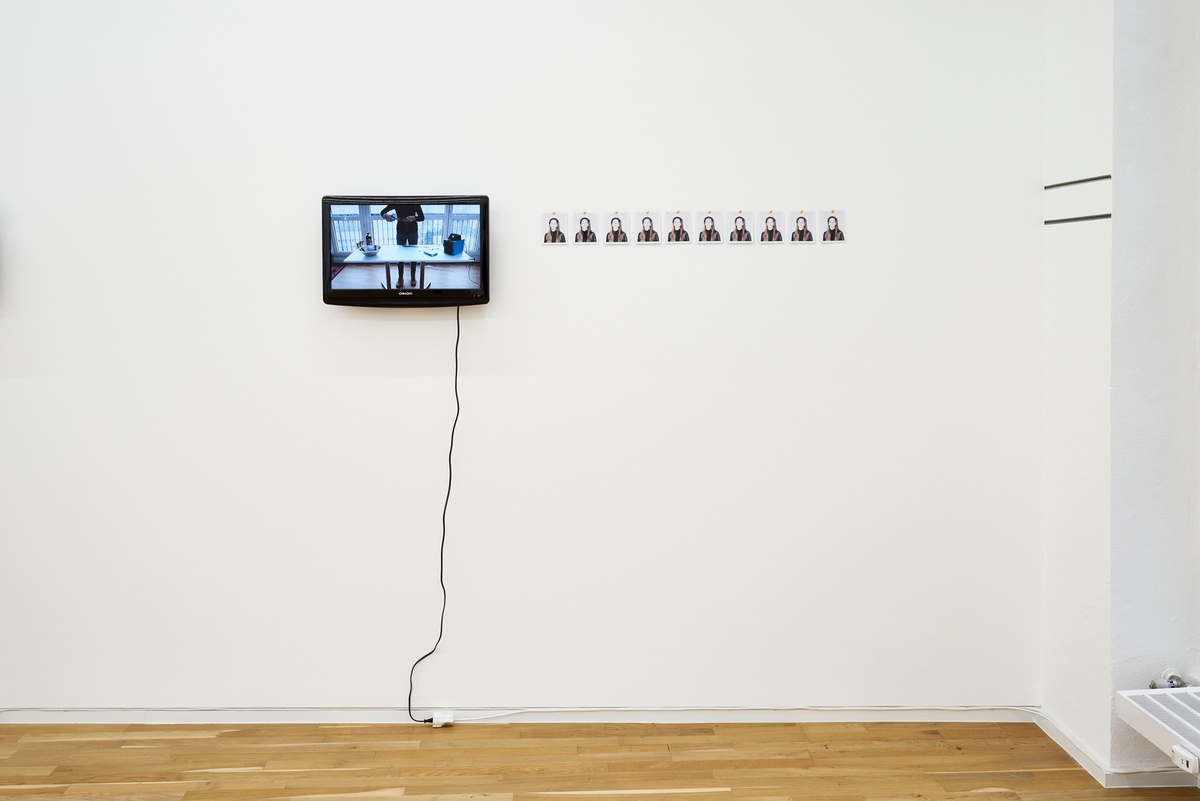

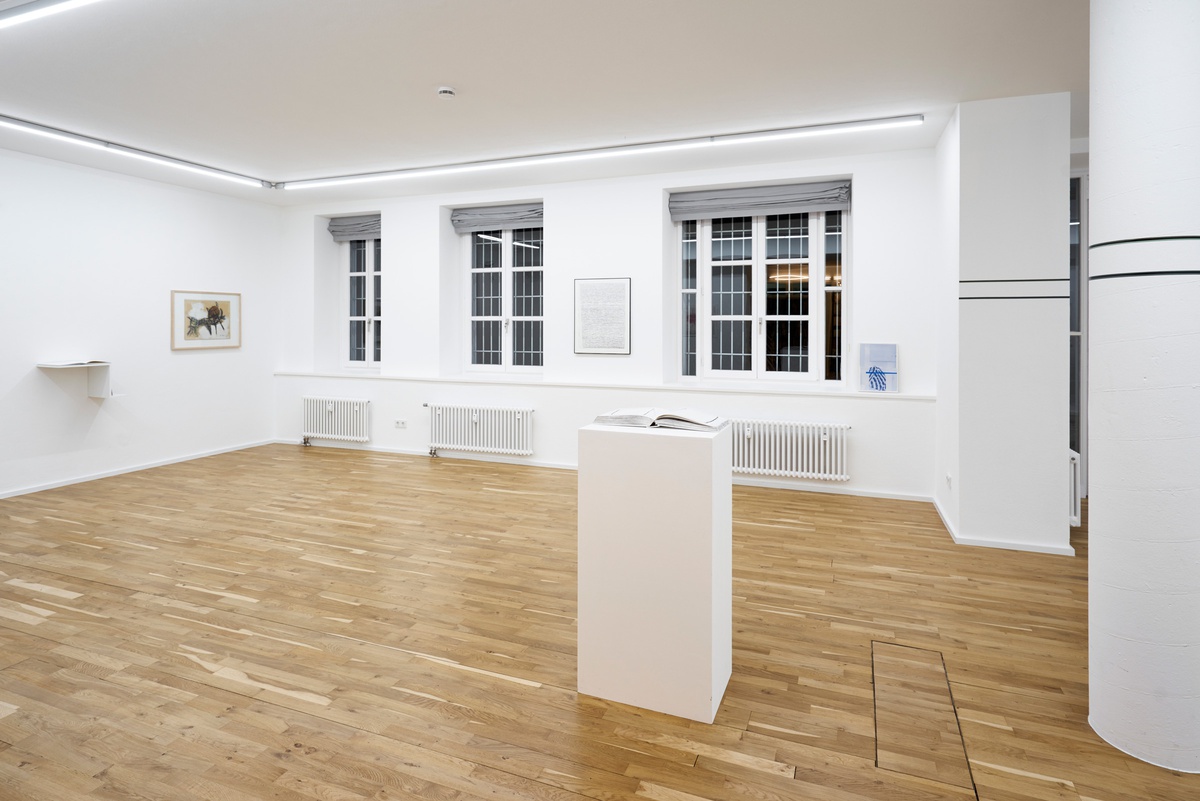

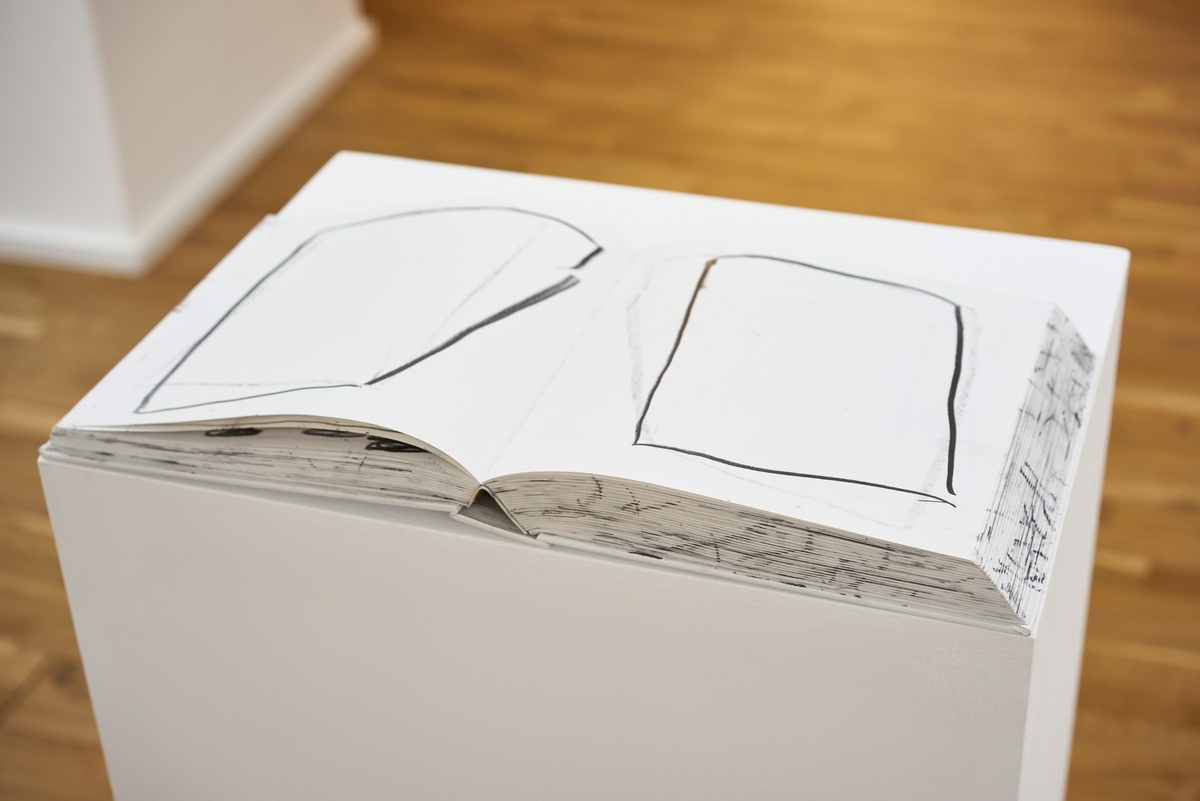

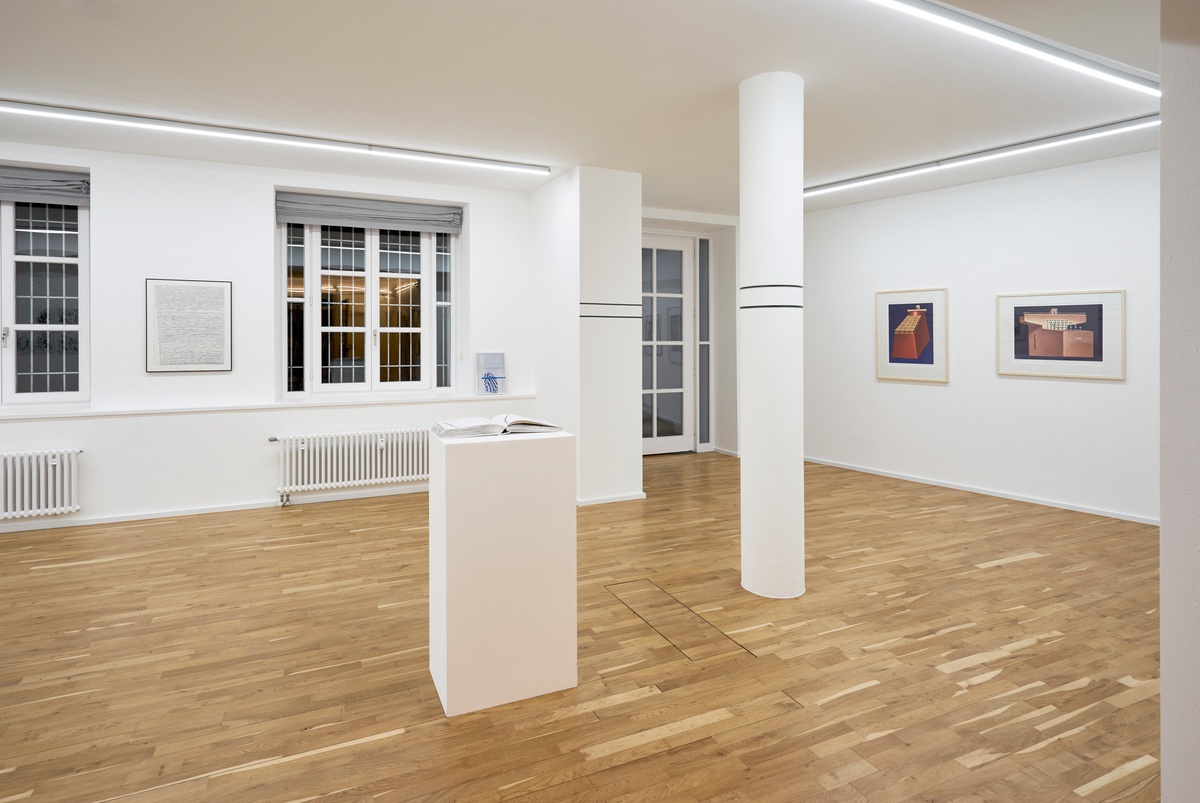

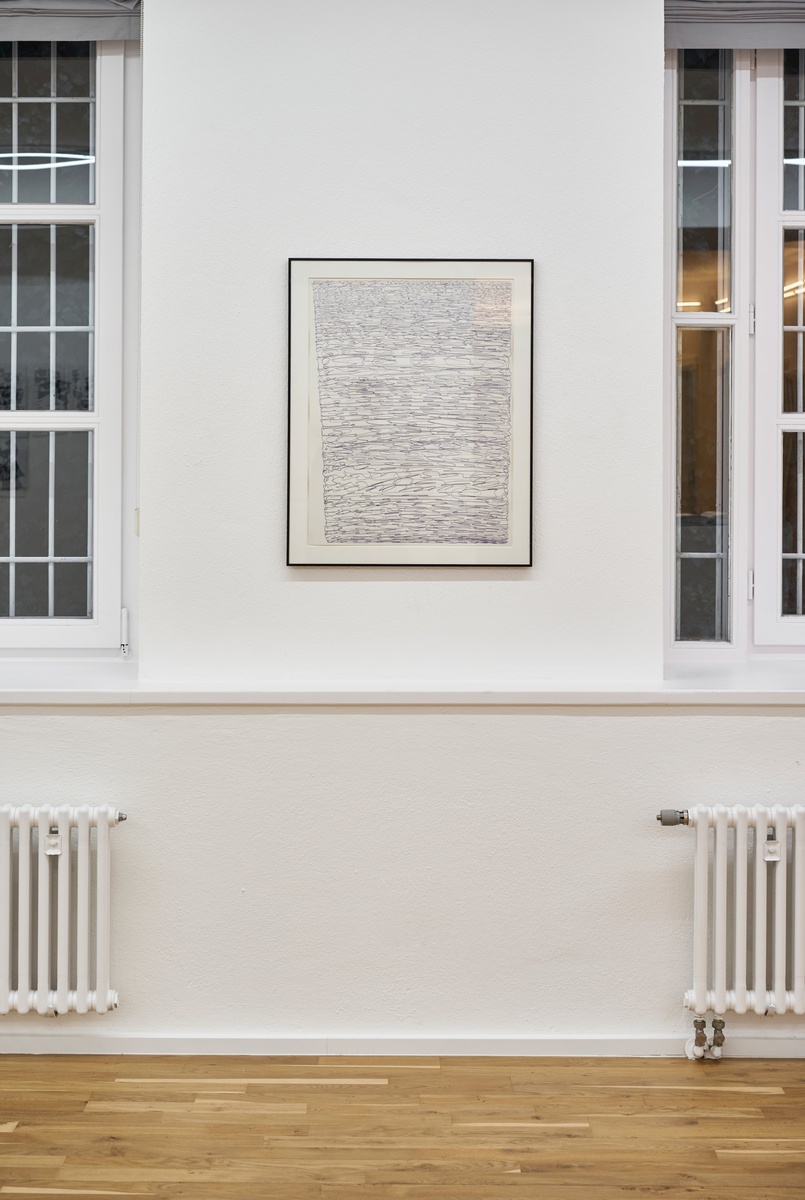

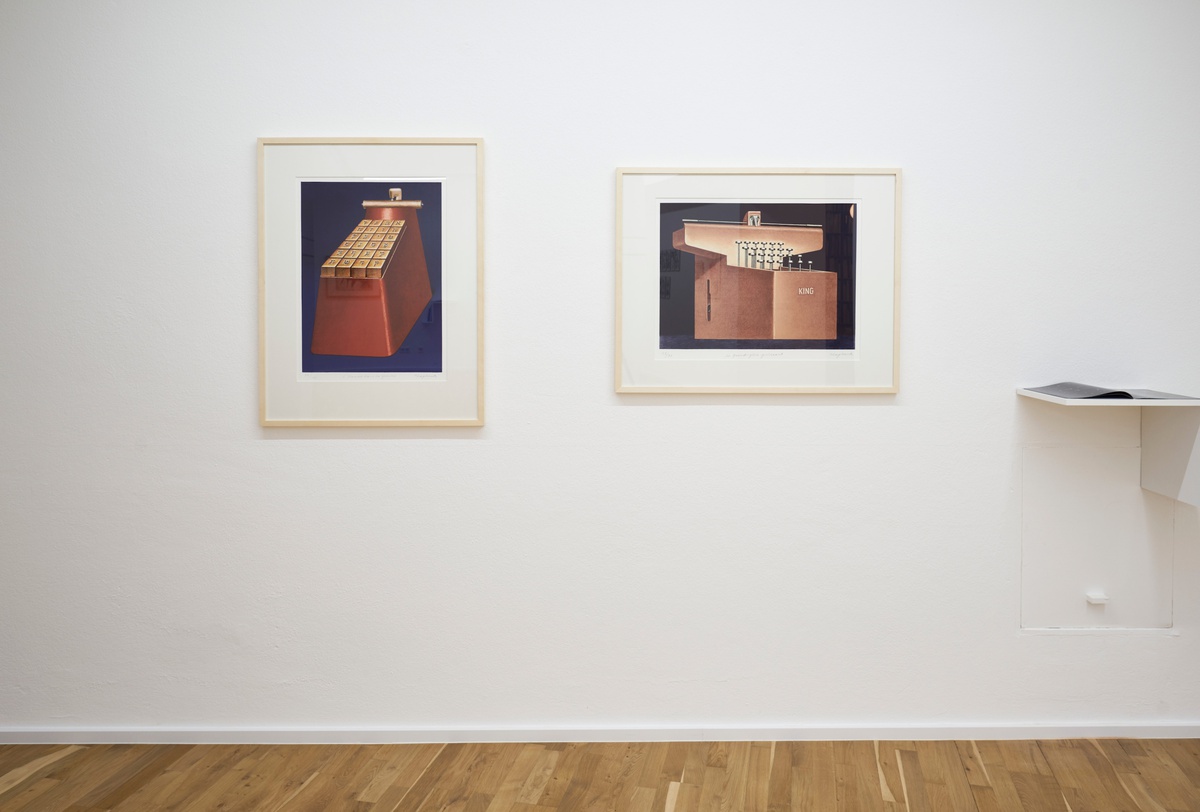

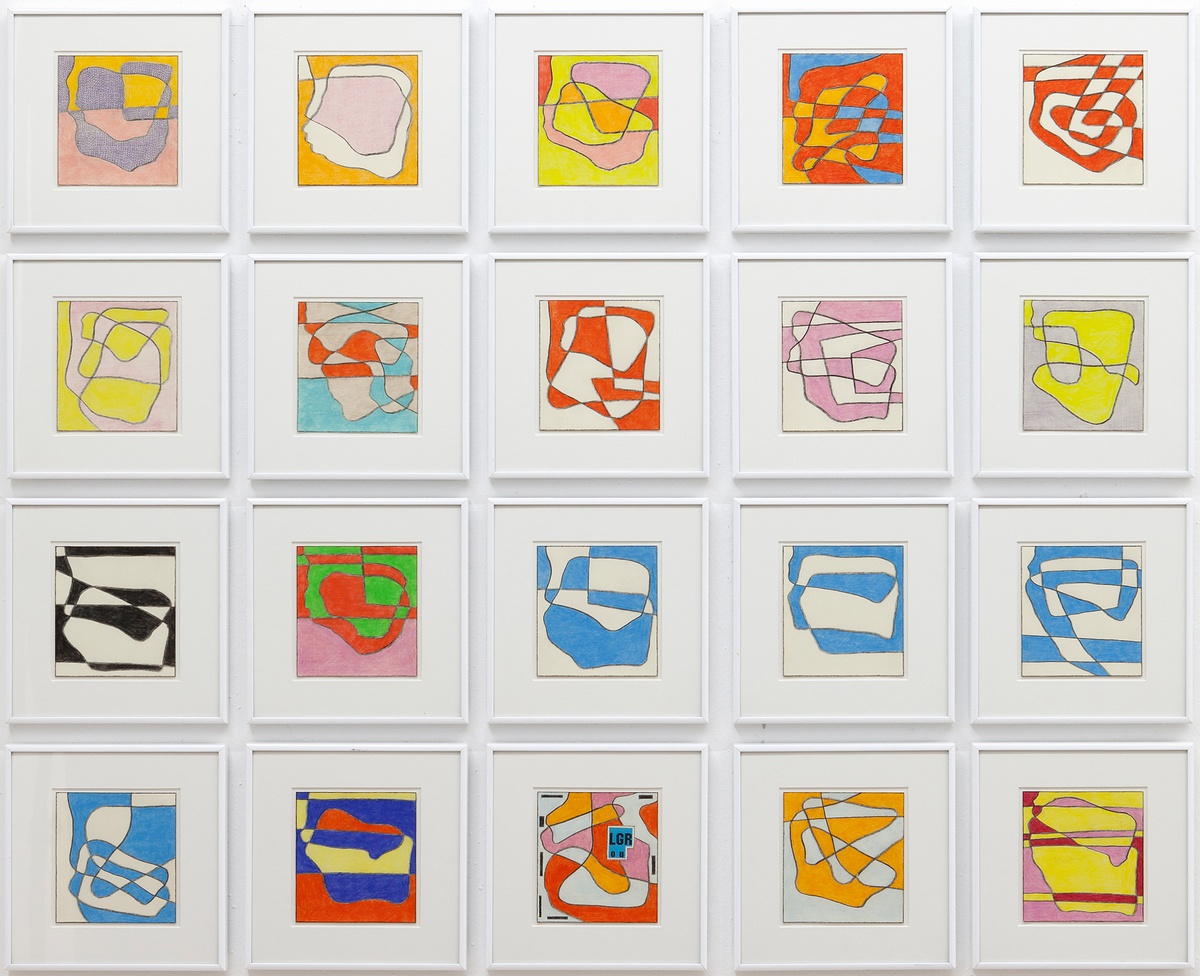

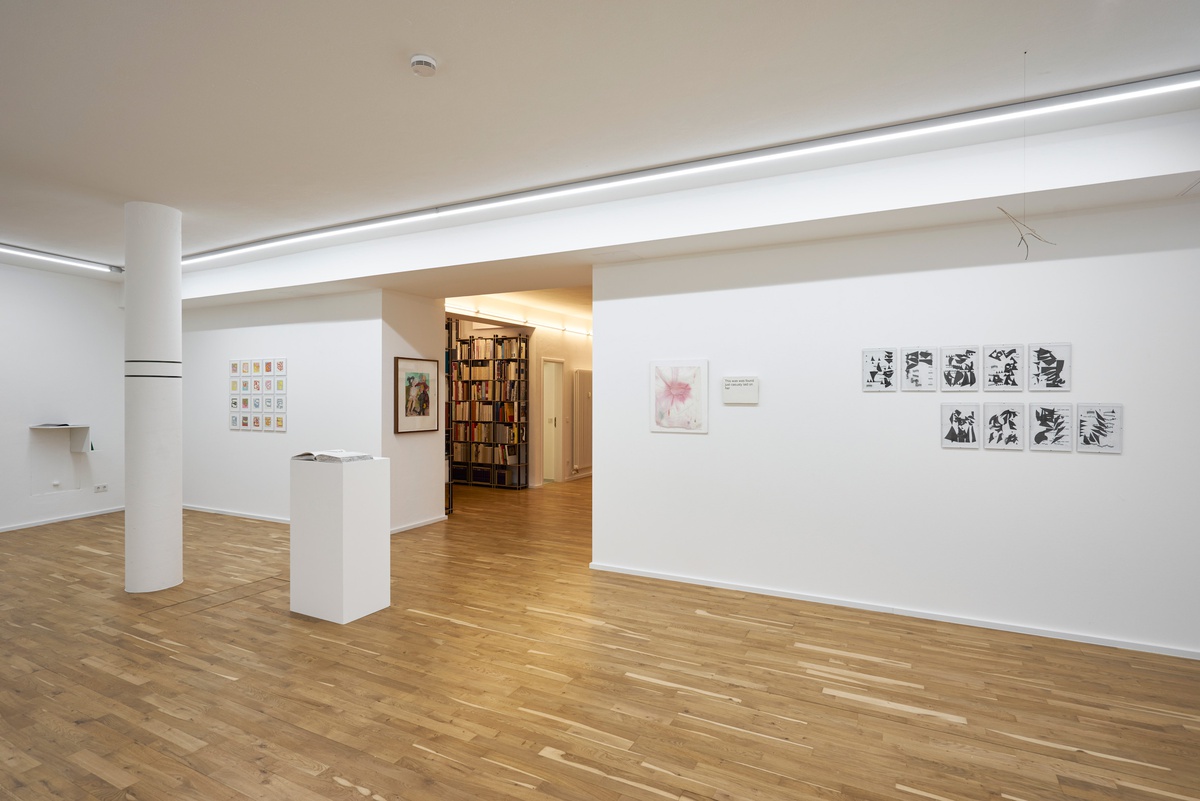

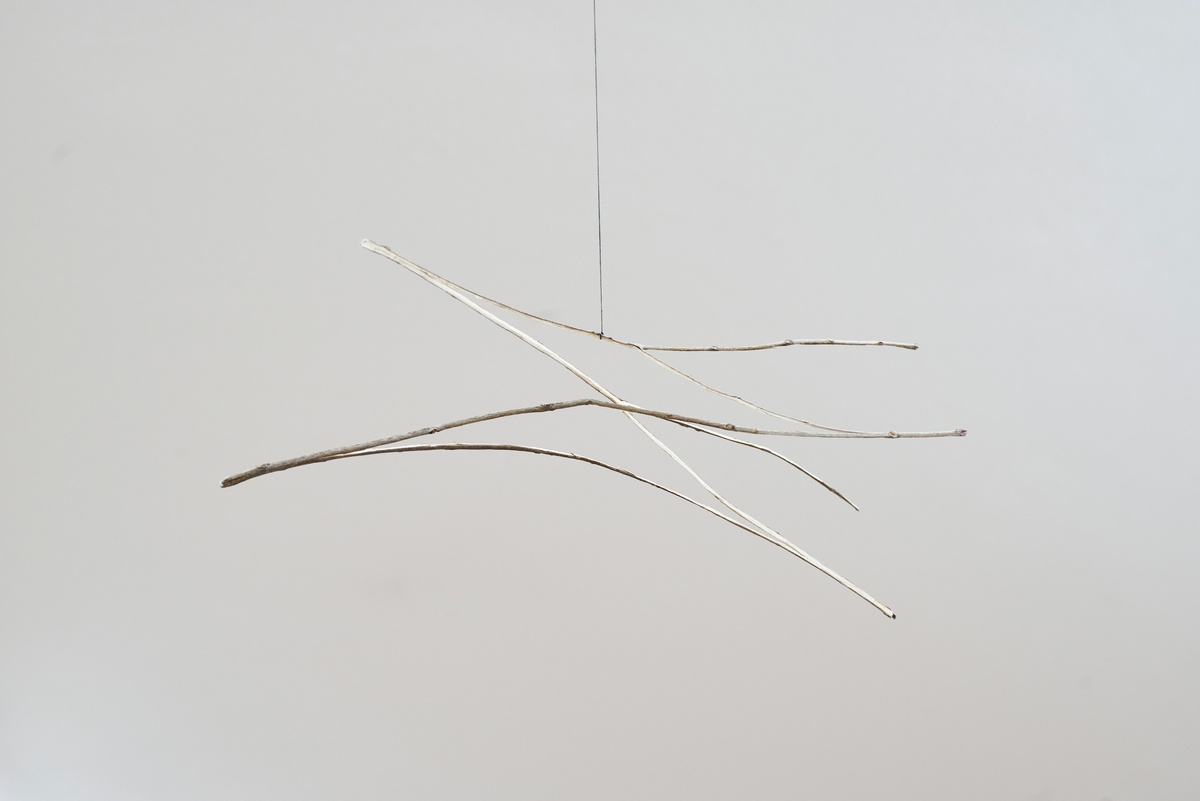

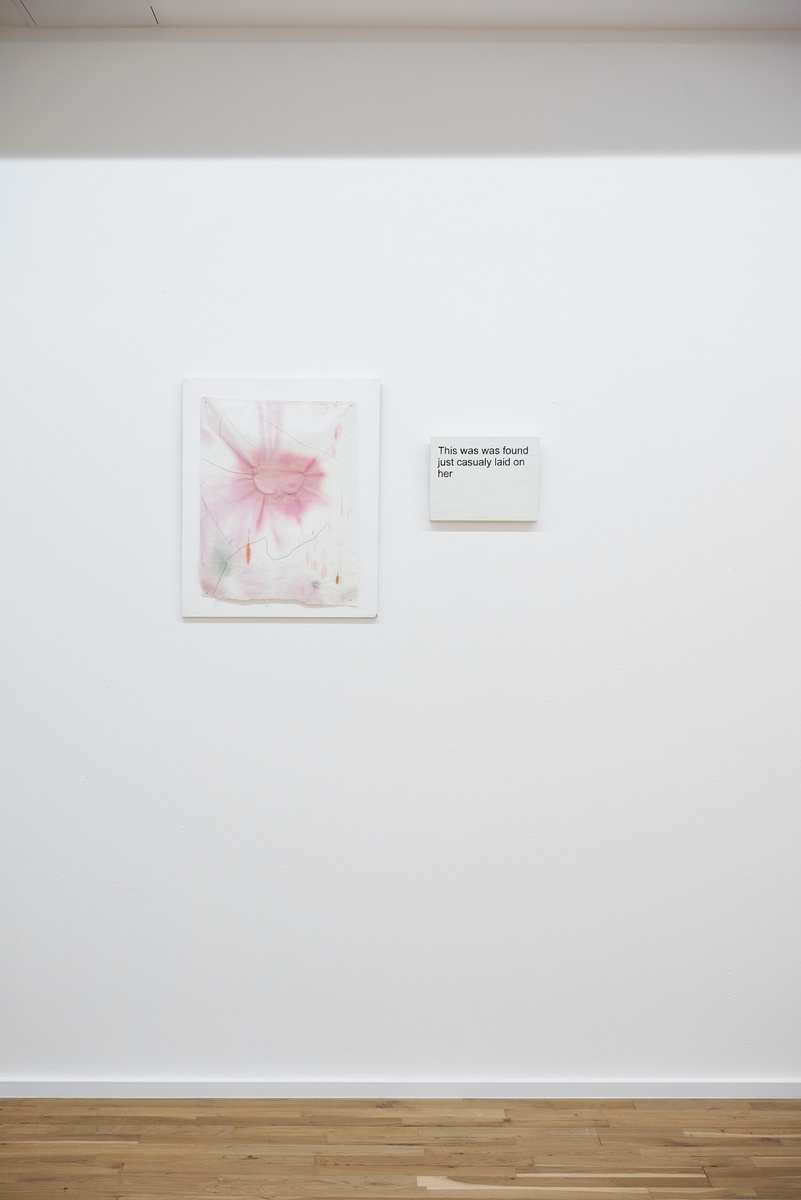

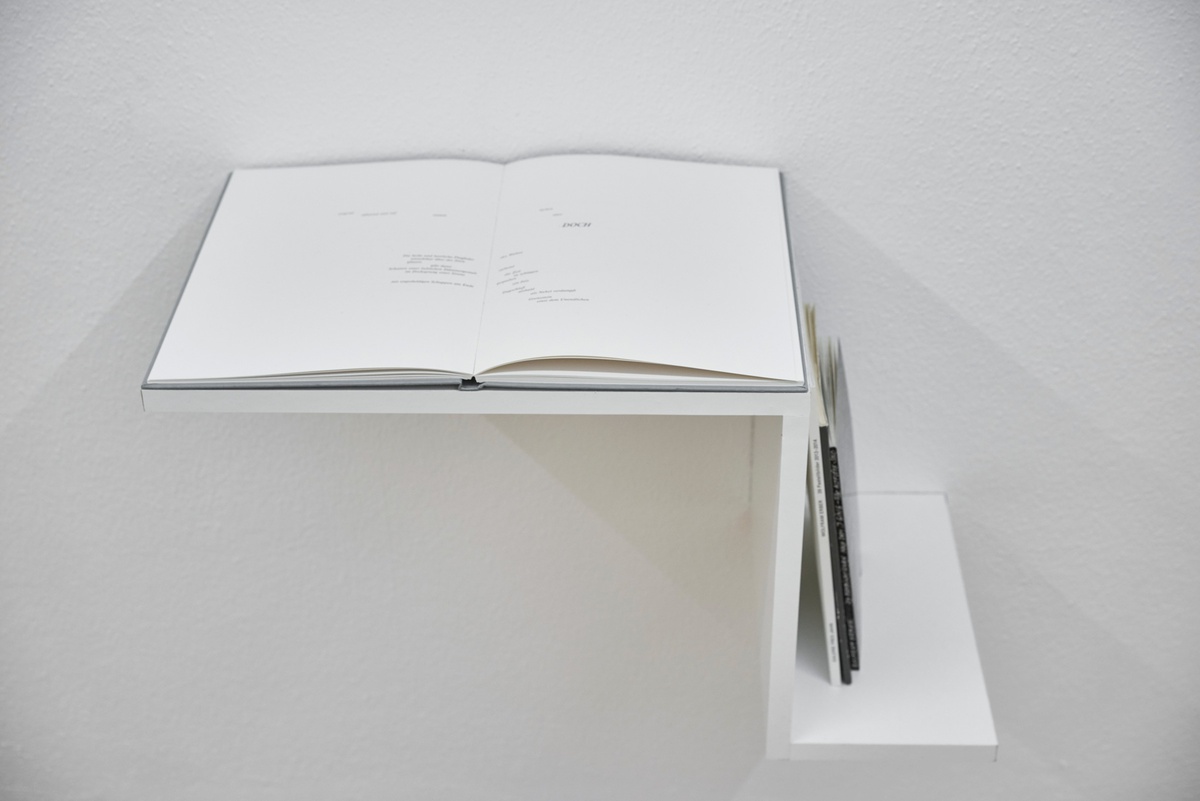

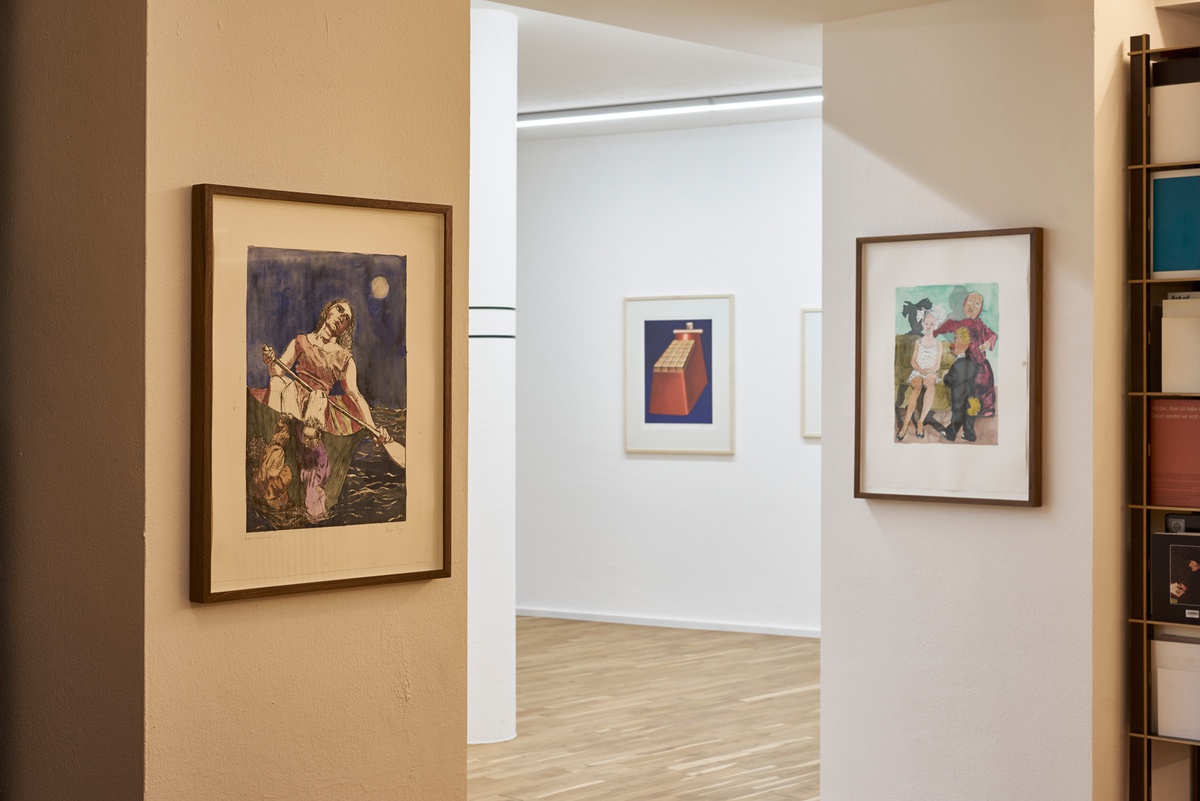
Installation view, Jahn und Jahn, Munich, 2018
© VG Bild-Kunst, Bonn 2018
Installation view, Jahn und Jahn, Munich, 2018
© VG Bild-Kunst, Bonn 2018
Glass, plasticine, marker
dimensions variable
Installation view, Jahn und Jahn, Munich, 2018
© VG Bild-Kunst, Bonn 2018
Wool yarn on wood, coated with campeche wax
90 × 90 cm
Installation view, Jahn und Jahn, Munich, 2018
© VG Bild-Kunst, Bonn 2018
Installation view, Jahn und Jahn, Munich, 2018
© VG Bild-Kunst, Bonn 2018
Installation view, Jahn und Jahn, Munich, 2018
Installation view, Jahn und Jahn, Munich, 2018
Electroformed copper
75 × 40 × 8 cm
Installation view, Jahn und Jahn, Munich, 2018
© VG Bild-Kunst, Bonn 2018
Photo print on foil
Installation view, Jahn und Jahn, Munich, 2018
© VG Bild-Kunst, Bonn 2018
Installation view, Jahn und Jahn, Munich, 2018
Paraffin, threads, copies, fabric, tackers, needles. Dust, paper, paint, oil, typewriter, yardstick
220 × 100 cm
Installation view, Jahn und Jahn, Munich, 2018
Installation view, Jahn und Jahn, Munich, 2018
Colored pencil on paper
je 42 × 60 cm
Installation view, Jahn und Jahn, Munich, 2018
Video, 7'30'', 10 Polaroids
je 10,8 × 8,5 cm
Installation view, Jahn und Jahn, Munich, 2018
© Karel Appel Foundation / VG Bild-Kunst, Bonn, 2018
Graphite on paper, 504 pages
25,6 × 25,6 × 5,4 cm
Installation view, Jahn und Jahn, Munich, 2018
© VG Bild-Kunst, Bonn 2018
Colored pencil on paper
65,5 × 49,5
Installation view, Jahn und Jahn, Munich, 2018
© VG Bild-Kunst, Bonn 2018
Pencil and crayon on paper
je 11,6 × 10,8 cm
Installation view, Jahn und Jahn, Munich, 2018
Sliced Sibipiruna branch, line
18 × 31,5 × 15
Installation view, Jahn und Jahn, Munich, 2018
Installation view, Jahn und Jahn, Munich, 2018
Installation view, Jahn und Jahn, Munich, 2018
© VG Bild-Kunst, Bonn 2018
The exhibition curated by Marta Ramos-Yzquierdo will present a selection of works from Fred Jahn’s gallery archives and library, together with the pieces of about 27 international artists: both guests and artists who work with Fred and Matthias Jahn. The starting point is Gallery Jahn und Jahn’s desire to consider its own history as a way of reflecting how stories are told, the aspects that are omitted, and how a common future can be invented through artistic thinking.
Fred Jahn has four decades of experience working with artists, mainly with the generation of American minimalists and the revived German scene of the 80s. The exhibition is a story about their close relationships as well as his dedication to works on paper and artists’ books as places of experimentation. Meanwhile, Matthias Jahn has re-established his space, opening it up to new generations and dialectics. The union of both, in parallel spaces, therefore becomes an opportunity to offer an active programme based on constant dialogue.
Fred Jahn’s extensive library, which contains about six thousands volumes devoted to 20th century western art and includes the editions he himself produced, is based in the ground floor of the new rooms of Matthias Jahn’s gallery. Books are the foundation and the centre of this new journey. The exhibition starts symbolically in the library space as a reflection on what stories we keep, the stories that have been written and the books that have been selected, but also how they follow different codes; as books to be organized in the shelves, but also as language and words on paper. Books and drawings will create an open dialogue with more recent works, all functioning at the same level of reading.
The 20th century was focused on progress as a goal, and artists posed questions about the value of the modern project through radically rationalist positions, or through the acceptance of inherent human irrationality. These two perspectives will be reflected in works by Karel Appel, Willi Baumeister, Heinz Butz, Per Kirkeby, Konrad Klapheck, Hermann Nitsch, and Paula Rego, alongside catalogues and artists books by Wolfram Erber, Isa Genzken, Imi Knoebel, Barry Le Va, Gerhard Richter, Fred Sandback and Al Taylor.
The exhibition aims to show how these artists started deprogramming those past codes and how this attitude continues with new subjects and strategies in our present moment. The works will create a network of references to analyse these books and their words, but more than this: memory, images, modes of perception and, accordingly, modes of imagining. In other words, through their pieces, the artists investigate the human being both in terms of individual identity and in terms of a social collective body.
After the failure of past utopias, later discourses confirmed these ruins and tried to build something from their fragments, but also went beyond revisionism. Contemporary discourses propose an approach that is open to "the other": thoughts and philosophes that have been consistently rejected, erased or ignored, and which represent the main issues dealt with in the exhibition. Examined first is our attitude towards the “feminine” as condition and as gaze; secondly, a new approach to nature and new ways of learning from it; next, technology as interface with the world; and finally, the different concepts of time and history that exist simultaneously in different cultures.
Among the works that will stand out in the show is Brazilian artist Letícia Parente´s film Made in Brazil, pioneering for the 70´s, along with the video Extrañeza, desprecio, dolor y un largo etc. [Strangeness, disregard, sorrow and a long etcétera] by Spanish artist Esther Ferrer, and the feminist manifesto Estudo para facadas [Study for stabs] by Lenora de Barro, likewise from Brazil. Pauline Beaudemont will present her latest film, adding a refreshing voice to this feminine gaze.
Carlos Amorales will show a series of scores created for the Mexican Pavilion, one of the most significant contributions to the last Venice Biennale. A system of codes as language will also be present in Julius Heinemann´s drawing book and Laure Prouvost´s installation that confronts image and words.
Nature as a starting point to reflect on new methods and technologies can be found in the works of Daniel Steegmann Mangrané, as well as in works by Eduardo Navarro and Enrique Radigales. Juxtaposed with these, the Austrian artist Oliver Laric will reflect on historical memory, its image and its reproducibility.
Four of the guest artists are developing specific works for the show: Marlon de Azambuja will install a new, site-specific work based on stability and memory; Alessandro Balteo Yazbeck will abstract relationships of power using images that relate to the gallery’s history; Victor Leguy will interfere in the logical order of the library; and Sarah Lehnerer, using her installation and pictures, will propose a second reading of the show, breaking the partial point of view of any subjective process.
About the curator
Marta Ramos-Yzquierdo is an independent Spanish curator. Her main focus is on analysing the perception of the work of art in society and its consideration as labour. This study started with Artist working, (thinking on) new economies, a report and exhibition about labour conditions within contemporary art, done in collaboration with Ana Leticia Fialho who advised on sociological aspects. Ramos-Yzquierdo is likewise part of History in display (WT), a collaborative project with contemporary artists on critical insertion in Brazilian museums.
Following these two lines of investigation, she curated Emmathomasteca; Error as a star; Sublime and Dystopia, Ícaro Lira: General Field, and WORK – DO +, in São Paulo, Brazil; History is written by the victors, Felipe Ehrenberg 67//15 and its public program Visual scores, and After, Depois, Según, in Madrid, Spain; Rafa Munárriz, Sulla curva chiusa in Cagliari, Italy; and Applications of the various flow theories, with Carlos Amorales and Los Torreznos as guests in Buenos Aires, Argentina.
She has written several texts for artists: Ricardo Alcaide, Marlon de Azambuja, Alberto Casari, Cristina Garrido, Julius Heinemann, Victor Leguy, Bruno Moreschi, Yoshua Okón, Sara Ramo, Flora Rebollo, Matheus Rocha Pitta, Sara&André, Tercerunquinto or Fábio Tremonte, among others, and she also writes for magazines such as Arte al día, arthishock and a-desk.org.
Marta Ramos-Yzquierdo has a degree in Art History from the UCM, Madrid, an MA in Cultural Management from Instituto Ortega y Gasset. As a curator, she is part of the ICI New York network (she participated in the Curatorial Intensive Bogotá, 2014). After five years living in Chile, she moved to Brazil in 2009 where she was director of Galeria Baró. Between August 2012 and July 2013 she was appointed director of the independent art centre Pivô. Back in Spain, she ran the LOOP Fair 2017. She is currently living in Barcelona, where she continues to work on her research and new projects.
Text by Marta Ramos-Yzquierdo